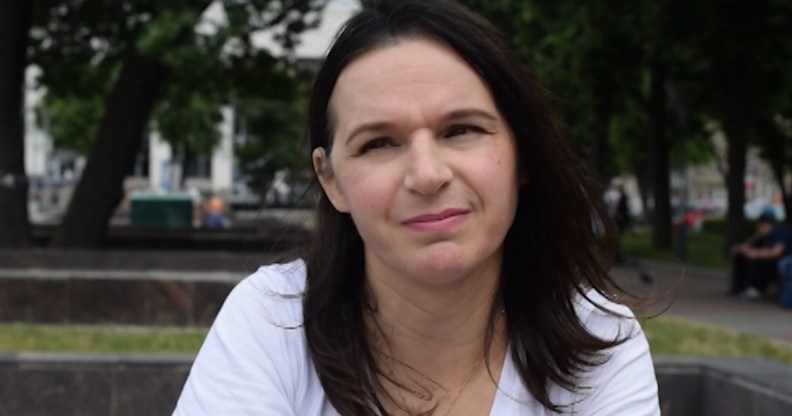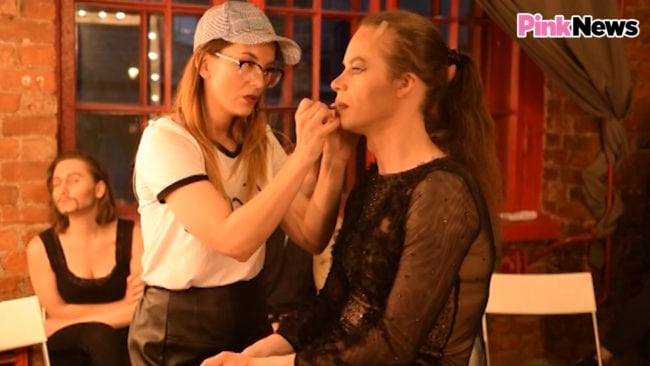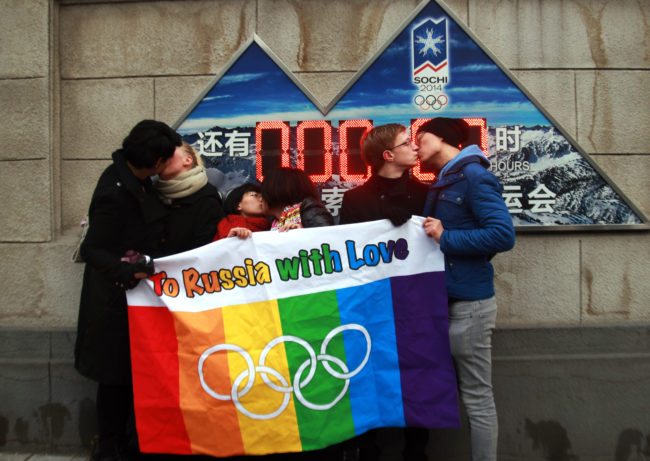LGBT in Russia: Meet transgender woman Ksenya

Ksenya is a transgender woman living in Russia (PinkNews)
“Transgender people are not very welcome and, most of the time, are forced to hide,” Ksenya tells PinkNews.
Russian native Ksenya, who considers herself lucky for never having run into any kind of physical aggression and for having a supportive family, was forced to move to St. Petersburg, which she says is the most tolerant and welcoming city in the country when it comes to LGBT rights.
“Some years ago, I realised that I had enough, I could not do this anymore – to live a double life, to hide, and I decided to transition,” she says.
“And now that I am already on the way to fulfil my dream, I became happier, more open and free and I really like that.”
Looking for support, Ksenya came across a trans-inclusive organisation called Queerpoint online and sought out their help.
Queerpoint’s founder, Olga Zhgun, is the only openly queer stylist in Russia and set up the organisation to empower trans and gender-nonconforming communities.
Olga runs workshops in make-up, clothing and confidence-boosting for a range of clients, including drag queens and kings.
Her services are as unique as they are in demand, especially in a society in which being transgender is still a dangerous identity to navigate.
For Ksenya, finding such a service was a life-changing experience.
“The first service I bought was a make-up training,” explains Ksenya.
During a workshop with Olga, Ksenya learned basic but fundamental things like how to apply mascara and pick outfits that she feels comfortable in.

Olga at Queerpoint (PinkNews)
“For me this was really important because I was a little humble and insecure of myself, thinking that I wasn’t able to apply nice make-up or dress up correctly. And it was exactly Queerpoint that gave me that confidence,” she says, smiling.
Although life is easier in St. Petersburg than it ever was to be trans in her hometown or even in Moscow, transphobia is still very real.
This summer, as thousands of football fans headed to Russia for the World Cup, activists protested and made it clear that “being visible is always a risk.”

Activists challenge anti-LGBTQ attitudes in Russia (Getty)
As the workshop comes to an end, the illusion of a safe, open-minded Russia ready to welcome gender-fluidity vanishes as one attendee approaches the exit with his spectacular make-up still on.
Some concerned participants ask: “Are you really going to go out like this?”
According to Olga, these fears are not uncommon among the community.
She says: “People are scared even in the photo-studio to be photographed.”

